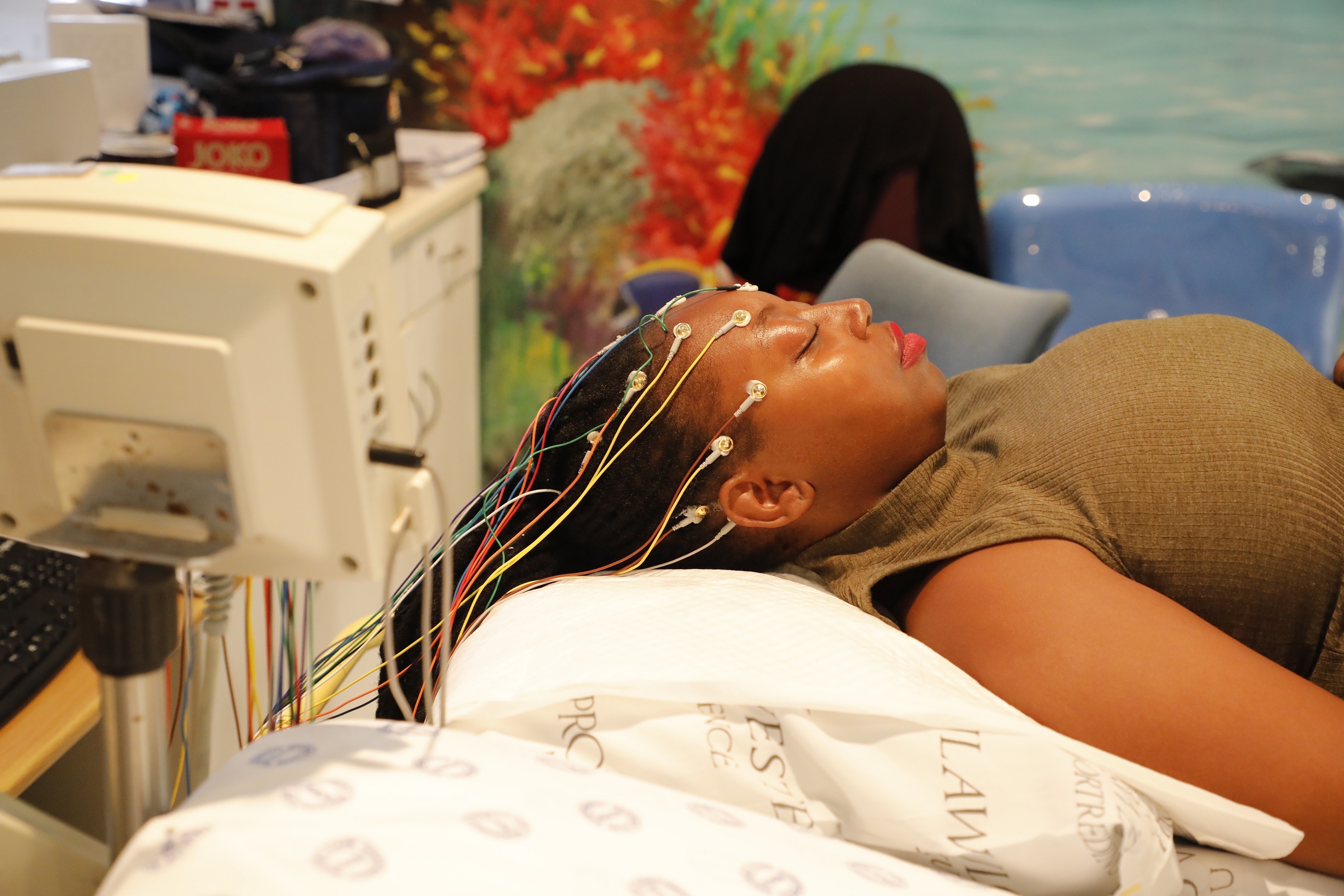
News
Epilepsy and COVID-19 – Awareness on National Epilepsy Day
Around 10% of people have epilepsy, making it the most common of neurological conditions. It affects people of any age, with one in four affected experiencing their first seizure by the age of 20. Yet few understand what it is, and how it is treated.
National Epilepsy Day was commemorated on 21 June 2020 to raise awareness of this common, treatable neurological condition.
The neurology service at Red Cross War Memorial Children’s Hospital is committed to improving the lives of children with epilepsy through dedicated weekly outpatient epilepsy clinics and access to qualified and experienced clinicians on a daily basis. There are some 2000 clinic visits by around 800 regular and new young patients each year.
“The service is unique in that it offers care to children from self-limiting forms of epilepsy through to children who are medically resistant and may need alternative interventions and treatments. The service is strengthened by the multidisciplinary team who coordinate optimal care, these include the neurology doctors and clinic nurses, the neurophysiology technologists, neurosurgeons, child development specialists, neuropsychologists, child psychiatry and rehabilitation staff,” says Prof Jo Wilmshurst, head of Paediatric Neurology at Red Cross War Memorial Children’s Hospital.
The neurophysiology service has 2 trained paediatric clinical technologists who perform detailed electrophysiology studies, inclusive of video EEG telemetry. This is the only centre in the Government sphere, with access to this tool, which is essential for understanding complex and undefined epilepsies.
The majority of people with epilepsy have their seizures controlled by anti-epileptic medication. The choice of drug depends not only on the type of seizure but also on the individual and it may take some time to achieve the right dose for each person.
The COVID pandemic has meant that the service has had to adapt. Many children are managed by telemedicine to limit their exposure to the hospital setting, but urgent and worrying cases are still seen and provided with full access to care. Members of the team have assisted with the development of International League Against Epilepsy guidelines for safe care of people with epilepsy during the COVID pandemic. Reassuringly, there does not appear to evidence that COVID infection exacerbates epilepsy control.
Red Cross War Memorial Children’s Hospital helping train child neurologists for Africa
It is estimated that 80% of people with epilepsy live in resource limited countries, which encompasses virtually all countries in Africa. Most patients with epilepsy in Africa have no access to treatment despite the availability of effective anti-seizure medicines (ASMs) which can cost as little as US$ 5 per year.
The epilepsy diagnostic gap (EDG) and the epilepsy treatment gap (ETG) have serious consequences for people’s lives and well-being, and negatively impact on social and economic development. In Africa the EDG and the ETG are especially high (up to 90%) in low income countries and rural regions. Almost 25% of epilepsy is preventable and 70% of people with epilepsy can live seizure-free with low-cost and effective medicines.
The neurology team trains clinicians through the African Paediatric Fellowship Program to become accredited child neurologists.
To date trained doctors have returned to develop epilepsy care in Tanzania, Ghana, Sierra Leone, Uganda, Kenya, and Sudan, as well as local South Africa trainees. The neurology team are part of the South African / African Paediatric Epilepsy Training course (PET) faculty and have taught the course in South Africa, Kenya, Namibia, Tanzania, Ghana and Uganda using these educational courses to promote safe practice for children with seizures.
The trainees at Red Cross War Memorial Children’s Hospital are trained in electrophysiology interpretation and management of children with epilepsy, this curriculum has been adapted into a post-graduate clinical diploma under the University of Cape Town.
The neurology service targets key areas to audit and research which will benefit approaches to care, recent work has focused on understanding the demographics of our epilepsy population, optimal care for children in status epilepticus, how seizures manifest in the setting of other common systemic conditions such as HIV, what the landscape is of our children with genetics epilepsy and what clinical markers can we identify to promote early detection and treatment.
Additional info
https://www.gov.za/NationalEpilepsyDay2020
9 Facts about epilepsy
- Epilepsy is the most common neurological condition.
- About 1 in every 100 people has epilepsy.
- Epilepsy can affect anyone, at any age, and anyone can develop epilepsy at any stage of life.
- Up to 80% of people will have their epilepsy controlled by medication.
- Many children with epilepsy will outgrow it.
- Epilepsy isn’t a mental illness or psychiatric disorder.
- Epilepsy isn’t infectious or contagious.
- There are different forms of epilepsy and types of seizures.
- Epilepsy affects people of all levels of intelligence and from all racial and social backgrounds.
Dwayne Evans
Principal Communications Officer
Red Cross War Memorial Children’s Hospital
Mobile: 072 236 8658
E-mail: dwayne.evans@westerncape.gov.za


